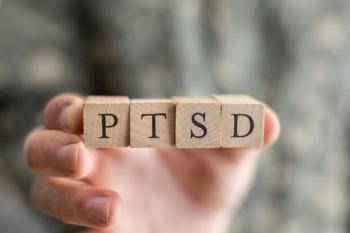
Conversations on Trauma, Music, and Healing, With Frank Clark, MD and Brooke Richey
Explore how music transforms trauma into healing as Brooke Richie shares her journey and innovative initiatives in this insightful episode.
In this episode of "Psyched Perspectives," host Frank Clark, MD, talks with Brooke Richey, a multidisciplinary musician, trauma survivor, and holistic voice coach, about the intersection of music, trauma, and healing. Richey describes her identity as a “trauma-informed music maker,” explaining how her creative process and personal philosophy are rooted in transforming pain into purpose. She discusses her endeavor called Wasp and Fig Sounds, which draws inspiration from the life cycle of the fig wasp—a metaphor for growth through struggle.
Richey shares how music served as both a coping mechanism and a means of survival during her experience with complex posttraumatic stress disorder.1 Throughout her life, her artistry evolved into a tool for helping others identify, process, and release their own trauma. Through songwriting, composing, and collaboration, she creates art that invites vulnerability and promotes healing.
Beyond music, Richey reflects on the therapeutic value of writing, describing creating as an avenue for self-expression and cognitive integration.2 She introduces The Strawberry Initiative, a campaign she designed to reshape the global approach to trauma healing by bridging spiritual and psychological perspectives. Drawing on religious texts, she emphasizes collective healing and the importance of reframing traumatic experiences as catalysts for growth.
Dr Clark is an outpatient psychiatrist at Prisma Health-Upstate and clinical associate professor at the University of South Carolina School of Medicine, Greenville. He served on the American Psychiatric Association’s Task Force to Address Structural Racism Throughout Psychiatry, and he currently serves as the Diversity and Inclusion section editor and advisory board member for Psychiatric Times.
Ms Richey is a multi-faceted musician, working as a film and concert composer, indie-rock artist and holistic voice coach with Brooke Richey Music. As the lead singer-songwriter for Black Bird Collective she strives to bring light into the darkness, reminding those struggling with their identity or those overcoming trauma, to always keep showing up. She is a nominated best-composer, placing 2nd for the Seattle Indie Awards in summer 2024.
References
1. Giourou E, Skokou M, Andrew SP, et al. Complex posttraumatic stress disorder: the need to consolidate a distinct clinical syndrome or to reevaluate features of psychiatric disorders following interpersonal trauma?. World J Psychiatry. 2018;8(1):12-19.
2. Niles AN, Haltom KE, Mulvenna CM, et al. Randomized controlled trial of expressive writing for psychological and physical health: the moderating role of emotional expressivity. Anxiety Stress Coping. 2014;27(1):1-17.
Newsletter
Receive trusted psychiatric news, expert analysis, and clinical insights — subscribe today to support your practice and your patients.







